Jeribucacu Wind Stats
- Forecast
- Maps
- Live
- Weather State
- Spot Information
Wind Stats
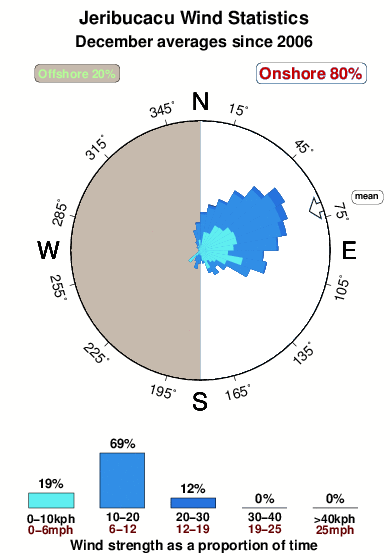


This chart illustrates how commonly and how strongly the wind blows from different directions over a normal December. The biggest spokes point in the directions the wind most commonly blows from and the shade of blue implies the strength, with the strongest winds shown by deep blue. It is based on 1240 NWW3 forecasts of wind since since 2006, at 3hr intervals, for the closest NWW3 model node to Jeribucacu, located 17 km away (11 miles). There are too few recording stations world wide to use actual wind data. Without question some coastal places have very localized wind effects that would not be predicted by NWW3. According to the model, the prevailing wind at Jeribucacu blows from the E. If the rose diagram shows a close to circular outline, it means there is no strong bias in wind direction at Jeribucacu. On the other hand, dominant spokes illustrate favoured directions, and the more deep blue, the stronger the wind. Spokes point in the direction the wind blows from. During a typical December, the model suggests that winds are light enough for the sea to be glassy (light blue) about 19% of the time (6 days each December) and blows offshore 20% of the time (6 days in an average December). Over an average December winds exceeding >40kph (25mph) are not expected, but 0 have winds on the range 30-40 (19-25) at Jeribucacu










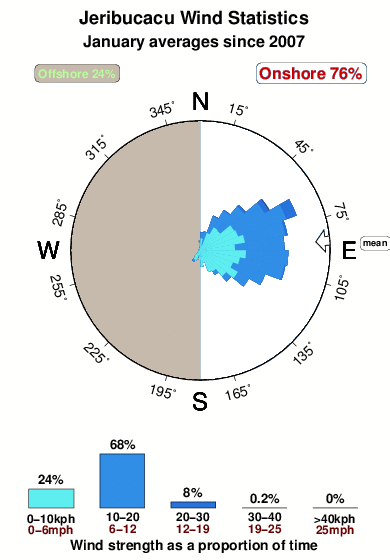
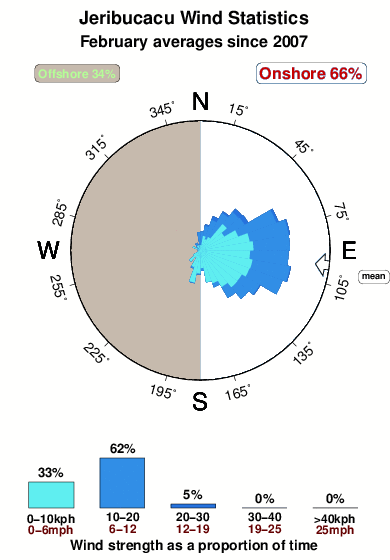
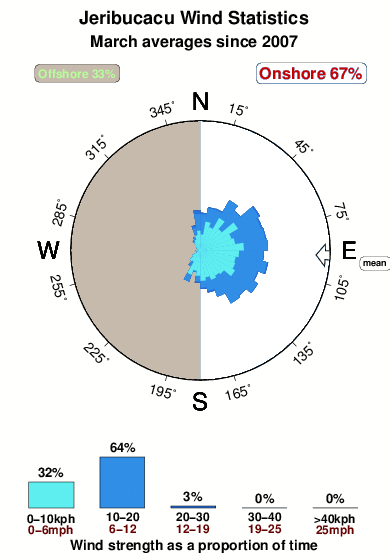
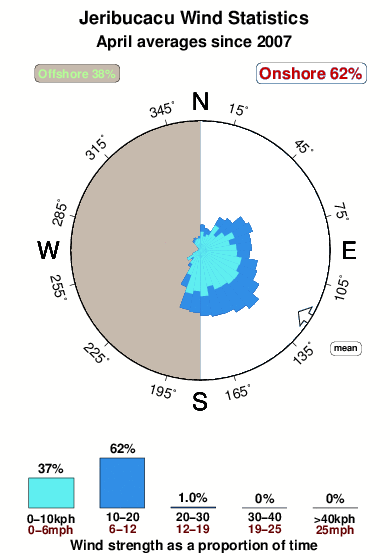
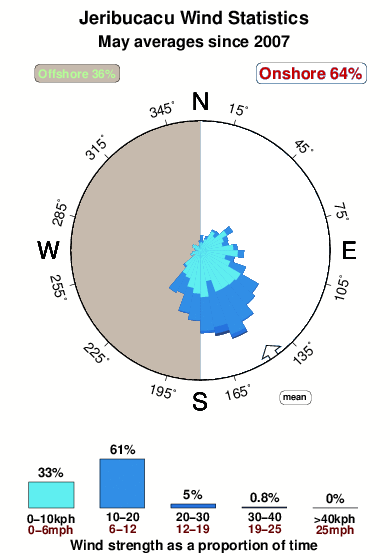
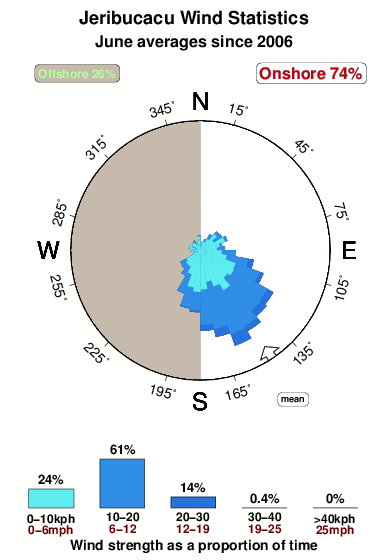
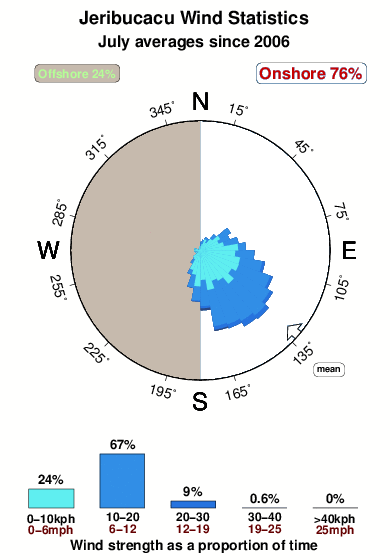
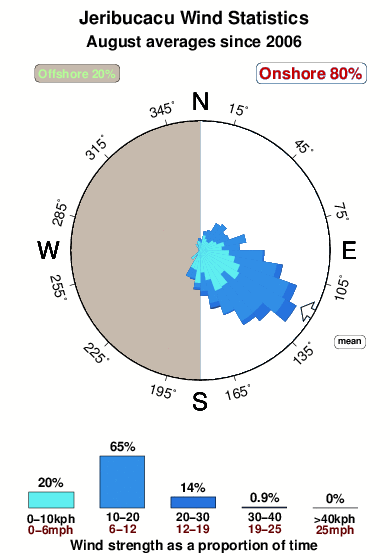
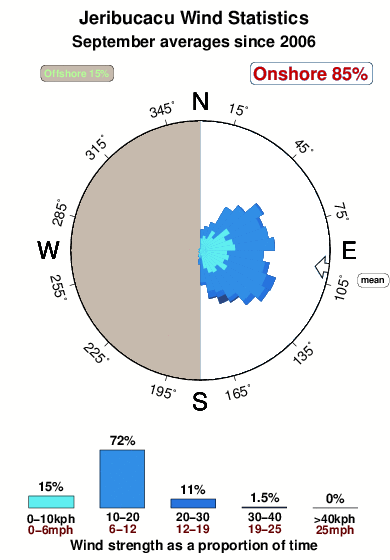
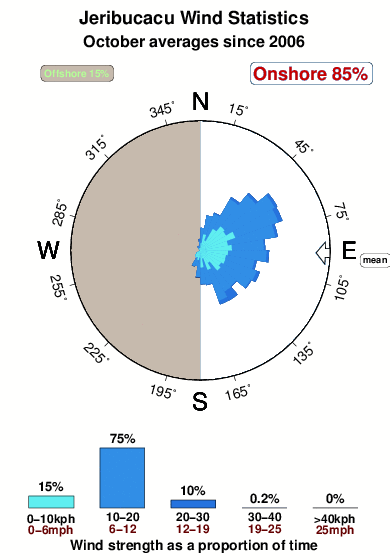
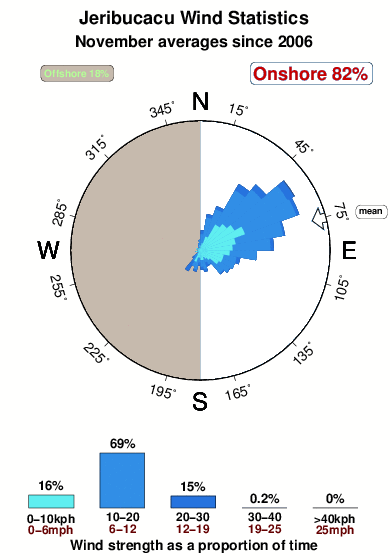
 Nearest
Nearest